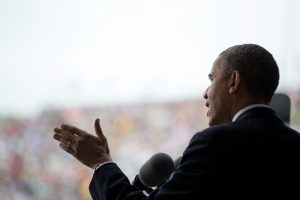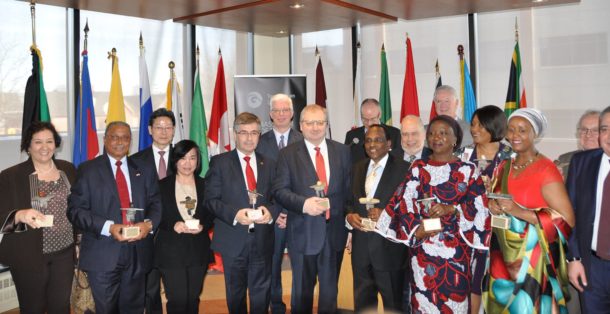Shakeel Ahmad Ramay, dailytimes.com.pk
image fromPakistan is celebrating the announcement of $20 billion investment by Crown Prince Muhammad Bin Salman (MBS). Indeed, this is a cause of great relief and satisfaction for Pakistan’s investment hungry economy, which was struggling to overcome the shocks and devastating impacts of the war on terror, frequent floods and bad governance. There were offers from the International Monetary Fund (IMF), but they were not acceptable. Moreover, our allies in the war on terror were using the IMF as leverage against us.
In this dire situation, Pakistan executed a plan to engage our friends and brothers. Saudi Arabia and the United Arab Emirates responded to Pakistan’s call with generosity. Qatar and Oman are also not far behind. Qatar has already offer 100,000 jobs for Pakistanis.
MBS visited Pakistan to re-enforce Riyadh’s commitments with Pakistan. Pakistan and the Kingdom of Saudi Arabia (KSA) signed a diverse range of agreements in multiple sectors including energy, agriculture, culture, information and tourism during the visit. The cherry on top was that MBS announced that this was just the beginning. These investments are in addition to the CPEC [JB: –see]-related investments that had already come in previously. So, Pakistan will have to enhance its capacity to tackle and absorb the investment flow. Capacity to absorb the investment or use it efficiently is a weak area in the context of Pakistan, as we have already witnessed this during the implementation of CPEC
There are many commonalities between CPEC and the Saudi investment. The Saudi package is similar to CPEC and covers a wide range of areas of economy. It is a long-term program. It is mainly focused on people. It is about creating jobs. Most importantly, it has a human face and human priorities like CPEC. Lastly, it has vital importance for our economic revival like CPEC. Therefore, it is anticipated that it will attract opposition from the enemies of Pakistan. Pakistan needs to devise a policy to avoid this situation by learning lessons from the CPEC related propaganda and shortcomings in our system.
CPEC provided the basic required infrastructure in energy and transport along with other sectors, which was required to attract investment. Now Pakistan has started to reap the benefits in the form of investment from other countries
There are areas where Pakistan needs to start working immediately. Pakistan will have to overhaul its investment policy, trade policy, provision of utilities and governance. Pakistan is very poorly placed on many indicators of ease of doing business and better governance.
Previous governments could not divert much attention in these areas. In the past, this performance led to the shrinking of investment in Pakistan, even Pakistani investors started to look for other countries for investment. It is positive sign that the present government is trying to resolve these issues. However, they have to speed up the process and put more human resources in to get results quickly. It is a huge task and the government needs much more resources in the human and financial sectors to execute it. The government does not have the required human resources to tackle this task. Therefore, it would be advisable for the government to build partnerships with independent Think-Tanks and other research institutions.
Another area of that needs attention would be countering social media propaganda. Pakistan has been a victim of this trend on multiple fronts. In recent times, CPEC has been a favourite target. Opponents applied all types of instruments to defame or malign CPEC and China. China and Pakistan were able to sustain the pressure due to their deep-rooted trust and friendship. Although Pakistan and Saudi Arabia also enjoy deep-rooted trust and brotherhood, this time the campaign would be more aggressive. It would require a multi layer strategy and tools to counter the negative propaganda.
The first line of defence would be the information ministry. Second line of defence of would be the political class of Pakistan. They will have to put aside their differences and work for the country. CPEC became a subject of debate among the provinces and political parties without any reason. All provinces and political parties started to play at the cost of CPEC. It set the wrong precedent and the country’s opponents a chance to use it for their negative propaganda. Therefore, this time it would be advisable to avoid this and try to solve all issues within political circles not on social, print or electronic media.
The third and most important actor would be the Foreign Office (FO) of Pakistan. The FO would have to redefine its public diplomacy [JB emphasis] department and concepts. Now we are living in an age of digital diplomacy and new innovative tools of engagement and pursuing national agenda. The FO would have to develop a policy which employs diplomatic experts, economic experts, culture advocates, military and strategic minds and the people of Pakistan (DECMP). Economic experts and military and strategic minds would be key in assisting the FO and developing national narrative and strategy. Economic experts would be leading on the front of “data” and real picture of economy. Data and explanation of data would be very critical in maintaining image of country. Military and strategic minds would be helpful to define and implement the security measures.
Engagement of people and promotion of culture would be a tool for countering psychological warfare. Ownership of common people will save people from being trapped in a negative agenda. Success on these fronts would determine the success of KSA’s investment and future prospects of investment.
The last area that needs special attention would be countering the notion of competition between CPEC and Saudi investment. This will be done just to create a misunderstanding between Pakistan, KSA or China. Pakistan needs to be very clear on this and adopt a transparent and comprehensive policy. First of all we need to be clear that CPEC is a unique and transformative program for Pakistan. China came to offer the program at a time when nobody was investing in Pakistan. CPEC provided the basic required infrastructure in energy and transport along other sectors, which was required to attract investment. Now Pakistan has started to reap the benefits in the form of investment from other countries.
Now, Saudi Arabia came forward to address the investment issues of Pakistan and help in managing the financial crises along with UAE and China. Saudi investment would be crucial to revive the economy and create jobs. It also presents an opportunity to increase trade with Saudi Arabia, which would be beneficial for managing the trade deficit. The establishment of an oil refinery could help the country save $1.2 billion. It will also open new avenues for building cooperation in tourism and the services sectors. In conclusion, both will compliment each other. There will not be any competition between them. Therefore, Pakistan should keep both initiatives as one initiative and treat them equally. It would be wise to create a trilateral group (China-Pakistan-Saudi Arabia Group of Investment) to steer the future initiatives in a smooth manner.
Original Article
CPEC and Saudi investment: the way forward
Views: 0











